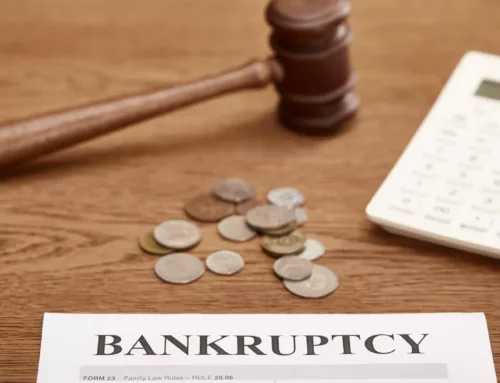If you are struggling with debt and financial problems, you might want to file for bankruptcy. Before you do so, you have to consider the different types of bankruptcy. A Bankruptcy Chapter 7 (liquidation bankruptcy) enables you to wipe-out debts and your nonexempt assets. On the other hand, a Chapter 13 restructuring specified in the bankruptcy code provides for multi-year arrangements to use potential revenue and obtain debt-relief.
Seeking legal help and assistance is highly recommended when you file bankruptcy cases. Bankruptcy attorneys can explain in detail how to file and help you understand relevant bankruptcy laws. This will make sure that you avoid any legal issues throughout your bankruptcy petition.
The bankruptcy process under Chapter 7 is typically simpler and cheaper. It does not require potential earnings and the liquidation appears to be appealing to debtors. Yet there are some major benefits to filing for bankruptcy Chapter 13 over Chapter 7.
Filing Bankruptcy Chapter 7
Chapter 7 directly translates into an upfront payment of debts. A bankruptcy trustee will be assigned to your bankruptcy case and liquidate your assets. This does not include declared properties that are excluded or considered exempt under bankruptcy law. This bankruptcy procedure will help you have a fresh start and obtain bankruptcy discharge at the end of the proceeding. It will allow you to pay your unsecured debts, such as credit card bills and medical bills. However, secure debts, together with child support, alimony, and certain tax debt, are non-dischargeable when you file bankruptcy.
A Chapter 7 bankruptcy filing is considered one of the cheapest bankruptcy options for eligible filers. Knowledge of federal bankruptcy law is crucial to ensure the success of this bankruptcy proceeding. Although most people strive to discharge past debts through Chapter 7, some opt to reorganize and propose a repayment plan. Such a multi-year strategy enables debtors to repay debts in the future.
Filing Chapter 13

A reorganization is another common form of consumer bankruptcy. Bankruptcies under this chapter allow debtors to restructure finances and propose a payment plan that will run for up to three to five years. Usually, in these bankruptcy cases, the debtor will not be able to fully improve credit scores until the debt repayment plan is completed.
Here, debtors pay off creditors within a set period. Reorganization bankruptcy enables you to secure your assets and come up with a repayment plan to pay back what is owed. You essentially use future disposable income to pay all debts, keeping the valuable personal property as you proceed.
Note that this chapter accounts for changes in the financial status of an individual. This may function both ways. After the payment plan is confirmed, the debtor may be needed to pay more if his or her financial conditions improve. In contrast, the filer may be able to obtain a reduction in monthly payments to debt collectors if he or she experiences unforeseen situations, such as acquiring certain health conditions.
In trying to deal with debt from mortgage payments, a Chapter 13 may be extremely helpful. When a lender decides to sue, for example, an individual may be required to give up assets or belongings. This often leads to foreclosures or repossession. A Chapter 7 bankruptcy only eliminates a bank’s claim against the individual. Chapter 13 is often necessary to lift a claim against the asset. Additionally, another benefit of Chapter 13 is that it allows you to strip down car loans to the retail value of the vehicle.
All of these are just previews of the vast bankruptcy world. The selection of various bankruptcy forms can make a great difference in the capacity of an individual to retain his or her home and vehicle, depending on the situation. A good strategy is needed when choosing the best bankruptcy chapter since your choice will be influenced by the types of debt you have and what assets you intend to keep. Tax consequences, effects on a credit report, and mortgage and lease impacts must likewise be taken into account when filing a bankruptcy petition.
Bankruptcy rules may be confusing. This is why it is important to have a bankruptcy attorney that will help you before, during, and after the bankruptcy proceeding. Deciding on what chapter is not the only crucial aspect. Timing has a great influence on the outcome of your bankruptcy petition as well.
If you are dealing with debt, hire an experienced bankruptcy lawyer that can help you in plotting the best recovery option for you to rebuild your financial future. Call our law firm at 248-600-4536. You can speak to our competent lawyers at Hammerschmidt Stickradt & Associates for a free consultation.



